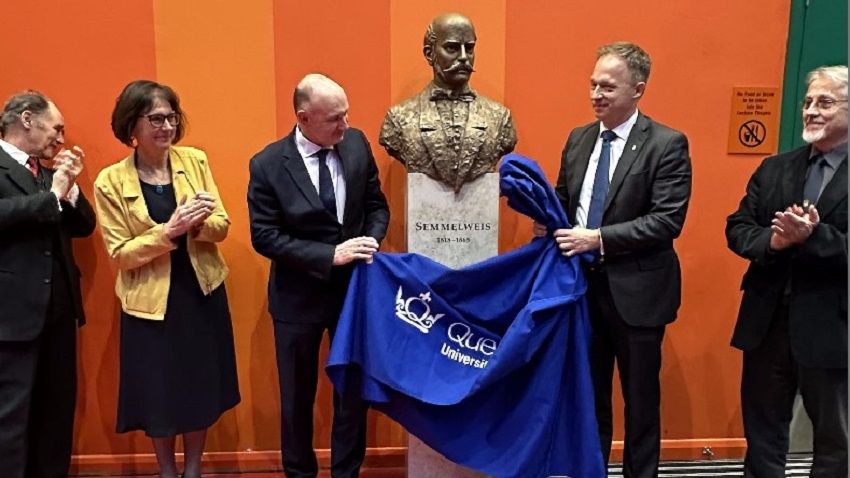In the institution associated with the oldest hospital in the British capital, remember the work of Adam Gower in the nineteenth century. Hungarian gynecologist Horn and his life-saving discovery.
Statue of Ignac Semmelweis erected in London commemorates Hungarian research physician, ‘savior of mothers’
– It can be read on the pedestal which was ceremonially inaugurated on Wednesday.
Today, when we can find hand sanitizers in almost every store since the Covid epidemic, it is almost inconceivable that in the middle of the nineteenth century even the medical authorities did not accept Ignac Semmelweis’ claim that the risk of puerperal fever could be significantly reduced by washing hands with chlorine water in maternity wards. Not despite the fact that Semmelweis backed up his conclusion with statistical data he had collected himself – and quite convincing. Gentlemen cannot have dirty hands – after all, doctors are gentlemen, was one unscientific counterargument. Although Semmelweis himself successfully applied this early method of hand disinfection in his own hospital, it wasn’t until much later that the scientist took notice of his discovery.
However, posterity is trying to make up for the mistakes of his contemporaries, so today not only the largest medical university in Hungary bears the name of Semmelweis, but more and more places abroad pay tribute to the memory of the Hungarian doctor.
Professor Laszlo Roseval, chair of the Semmelweis Memorial Committee, plays an important role in this, as he said at the ceremony in London: There are now 24 statues around the world commemorating the Semmelweis and what seem simple, but still thousands of life-saving discoveries.
In addition to Semmelweis, researchers studying and working in the UK contribute significantly to international recognition of Hungarian medicine and seek to further expand scientific cooperation between the two countries, said Marta Korbonets, a professor at Barts University and Medical University London. The Hungarian Embassy in London, represented at the ceremony by Ambassador Ferenc Komen, also provides assistance in this regard.
Semmelweis’ story also inspired the book. Operas and several plays have been made about his life, one of which was Mark Rylance’s play performed in Bristol last year, from which the Oscar-winning actor himself read excerpts at the London gala.
Cover photo: Unveiling of the Semmelweis Statue in London (Photo: Magyar Nemzit)












































